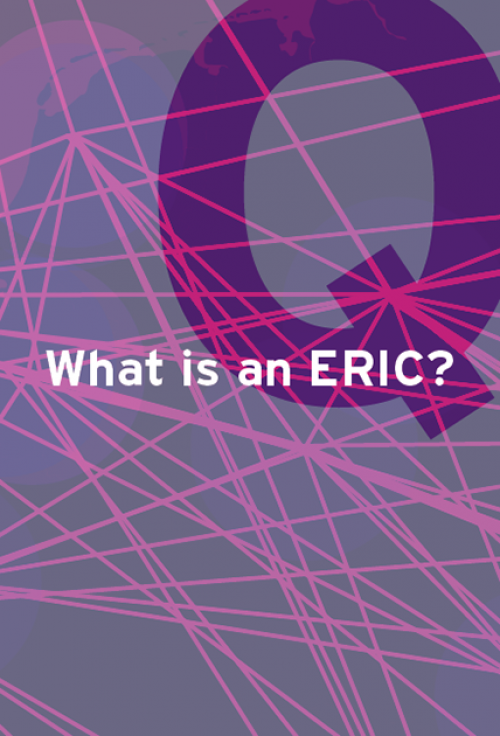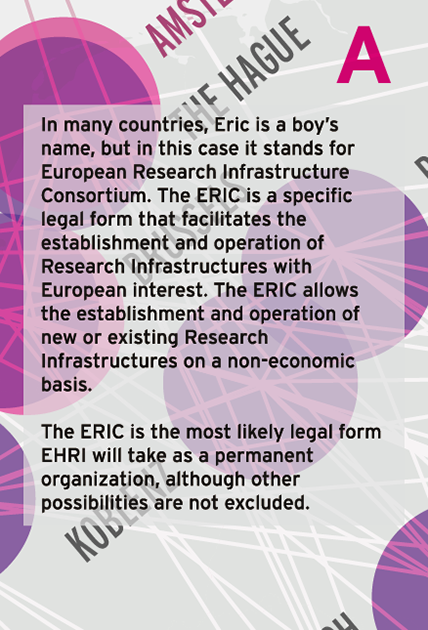The EHRI-PP General Partner Meeting Showed Important Progress towards a Permanent European Research Infrastructure Consortium

Towards a Secure Future for a European Holocaust Research Infrastructure: Shaping EHRI-ERIC
The fourth General Partner Meeting (GPM) of the European Holocaust Research Infrastructure - Preparatory Phase (EHRI-PP) project took place on 3-4 November 2021. Several dozen participants from 25 partner institutions and 17 countries as well as guests discussed the progress of the project since the last GPM, but especially where it is today and what the next tasks and goals of the project are. Due to the ongoing pandemic, the meeting was held online again.
Presentations and discussions during separate workshops showed that project partners, as national coordinators, are making steady progress in securing the support of countries for the future EU-designed European Research Infrastructure Consortium (ERIC).
Project Director Reto Speck gladly informed not only on the recent meeting of the Board of Governmental Representatives, which brings together nominated representatives from several countries, but also on recent very important announcement of the Netherlands to provide long-term financial support for EHRI-ERIC, including substantive hosting premium for its central hub in Amsterdam.
Despite the differences in various countries, thanks to the systematic work of the EHRI partners, we can recognize the first contours of several perspective national nodes of the future EHRI-ERIC. This organisation will essentially be a consortium of Holocaust-related research and archival institutions in a given country. The General Partner Meeting resulted in specific plans for a workshop focused on national nodes which should include representatives of perspective partners in various countries.
More details on various issues, such as quality and performance management assessment, or employment policy and risk management of the future EHRI-ERIC Business plan, took place during separate workshops.
The link between multi-interdisciplinarity and innovation in Holocaust research
The meeting of EHRI partners also threw a look back at work done so far in terms of a theoretical and methodological approach to Holocaust studies, offerings developed, expertise gained, and looked ahead to where EHRI could bring its contribution and how it should expand on a collaborative and multi-interdisciplinary level.
Innovation in Holocaust research is central to EHRI´s mission and is achieved through a transnational and inter-disciplinary integration of expertise and resources into a distributed research infrastructure. Therefore, shaping EHRI´s innovation strategy in Holocaust research is based on solid studies assessing the research trends and users´ needs. The meeting discussed the results of the latest study conducted with professionals outside the consortium, across Europe and the United States, with expertise in multi & interdisciplinary research and diverse academic backgrounds. The study focused on the impact, challenges, and advantages of the multi & interdisciplinarity approach to Holocaust research, the challenges Holocaust studies must face in the future and the possible solutions to overcome them and EHRI`s role in regard to the latter. The results revealed the academic, social and political relevance of EHRI by highlighting its potential role in developing strong transnational and trans-disciplinary research networks, offering access to diverse types of sources, supporting digital and technological advancement, linking academia with society at large and, when relevant, fostering awareness and reaction in regard to the pressure imposed by political actors.
An essential highlight of the study was the need for an integrated history of the Holocaust, the need to look outward and explore ways to connect with neighboring disciplines and fields of research.
The discussion about EHRI’s long-term science and innovation strategy led to a lively debate among the EHRI’s partners representatives regarding the challenges and the opportunities to broaden EHRI’s thematic scope and the areas where EHRI could contribute to support research by sharing its methodological advance.
The debate concluded with the suggestion that the development of EHRI’s innovation strategy should consider defining a clear scope or core while remaining flexible in exploring collaboration and methodological exchange with related fields and topics.
User Strategy and Access Policy and Technical Development
I n a follow-up to the surveys that have been undertaken to find out what users expect of EHRI’s resources now and in the future, the EHRI Preparatory Phase will now establish a User Advisory Board, whose composition will reflect the diversity of EHRI user's community. This will enable ongoing conversation between the project and the users, and will ensure the harmonization of the EHRI strategies with needs of all its users. Input from the Advisory Board can also aid in organizing EHRI’s ongoing activities, which in turn may provide useful data for planning the user strategies of the permanent EHRI-ERIC. Progress is also being made toward formulating an Access Policy. This policy will define the rules, procedures and modalities for providing wide, free, open access to online services as well as access to physical services, such as fellowships, training seminars and workshops.
n a follow-up to the surveys that have been undertaken to find out what users expect of EHRI’s resources now and in the future, the EHRI Preparatory Phase will now establish a User Advisory Board, whose composition will reflect the diversity of EHRI user's community. This will enable ongoing conversation between the project and the users, and will ensure the harmonization of the EHRI strategies with needs of all its users. Input from the Advisory Board can also aid in organizing EHRI’s ongoing activities, which in turn may provide useful data for planning the user strategies of the permanent EHRI-ERIC. Progress is also being made toward formulating an Access Policy. This policy will define the rules, procedures and modalities for providing wide, free, open access to online services as well as access to physical services, such as fellowships, training seminars and workshops.
On the technological front, efforts are being made to improve the EHRI Portal user experience and make it worthwhile for users to register. Not only can registered portal users add notes to descriptions and follow updates, they can also take advantage networking features such as viewing other users’ profiles and follow and message other users. Ideas for future features include providing registered users with the option to request that their account be promoted, and allowing these users to promote their own research books, papers, etc. Another current focus of the Preparatory Phase is refining a Data Management Plan to ensure that EHRI’s data assets are managed in alignment with relevant standards and best-practices, and that our technical infrastructure and data related policies are optimally aligned with developments at the European level.
Next steps
The meeting showed that, despite the ongoing COVID-19 pandemic, the EHRI - Preparatory Phase project has made significant progress in creating future EHRI -ERIC. Today we can say that this project will result in a business plan in less than a year and in an application for becoming an ERIC.